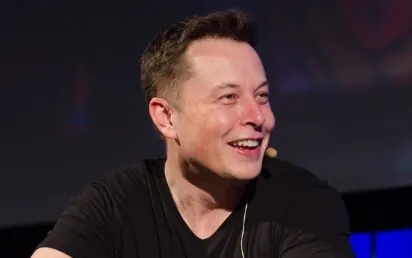Elon Musk has unveiled a new private messaging tool on X – known as XChat – which seems to move the microblogging platform closer to an ‘everything app’.
Musk led a takeover of Twitter in a $44bn deal in 2022 and rebranded it as X amid a host of changes including how users are verified.
The goal seems to be to replicate the success of Chinese app WeChat in the Western world: an app where people buy goods, access services and communicate together in one place.
The serial entrepreneur revealed the new private messaging feature – an alternative to X’s current DM (direct messaging) functionality and currently only available to some beta testers with X Premium accounts – with a post on the platform.
“All new XChat is rolling out with encryption, vanishing messages and the ability to send any kind of file. Also, audio/video calling,” he wrote.
“This is built on [programming language] Rust with (bitcoin style) encryption, whole new architecture… You can do audio/ video calls without a phone number across all platforms.”
It is reported that the vanishing messages mode has options for five minutes, one hour and eight hours.
Critics pounced on the claim of ‘bitcoin-style’ encryption, pointing out that the blockchain on which bitcoin is based does not contain encryption but rather cryptography and digital signing.

Dario Betti, CEO of the Mobile Ecosystem Forum (MEF), said the description was “technically inaccurate” as Bitcoin transactions are not encrypted, but rather public by design.
“However the phrase hints at a larger vision: integrating financial services directly into the platform,” he continued. “It might be a way to hint at structural diversity from true encryption: time will tell if the comment was embracing encryption or announcing a new security approach.”
Betti said that Musk’s history as an exited co-founder of PayPal gives him a chance of creating the ‘everything app’ for the West.
“While the WeChat comparison is compelling, the Western mobile ecosystem operates differently,” he explained. “Attempts by Facebook, Snap and others to replicate the success of WeChat’s all-in-one model have largely failed.
“Users in North America and Europe continue to prefer ‘best-of-breed’ apps over centralised platforms.
“Yet, Musk’s background with PayPal and his willingness to break platform conventions may offer an edge. X’s aggressive push into payments, content monetisation, and now encrypted communication is unlike anything attempted by a major Western social media platform to date.”
Builder.ai scandal: How ‘chief wizard’ Sachin Dev Duggal was outed as another Oz
Expanding on the bid to take on popular messaging apps WhatsApp and Signal – both of which feature fully encrypted communication – Betti said the success of XChat will depend on trust.
“As of mid-2024, X’s previous encrypted messaging rollout was limited and not enabled by default. Musk has acknowledged these missteps, calling earlier versions ‘clunky’,” he said.
“The shift to encryption by default marks a serious course correction – but one that will be closely watched by regulators and privacy advocates alike.
“Furthermore, XChat’s features could raise compliance questions under laws like the EU Digital Services Act (DSA), which mandates transparency and user protection in digital platforms, especially around encryption and moderation.
“And if XChat evolves into a payment channel, it will come under the purview of financial regulators, adding another layer of complexity.”
X has already secured regulatory approvals for payment processing in multiple US states and has partnered with Visa to create ‘X Money Accounts’.
These accounts would allow users to send and receive money, make purchases and potentially manage their finances entirely within the app.
“By turning messaging into a transactional layer, XChat could serve as the core infrastructure for peer-to-peer payments and, eventually, commercial activity,” said Betti.
“This mirrors how WeChat evolved in China from a messaging app into an indispensable tool for everything from grocery shopping to doctor appointments.”

